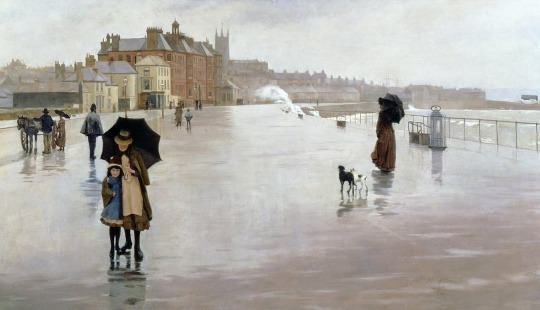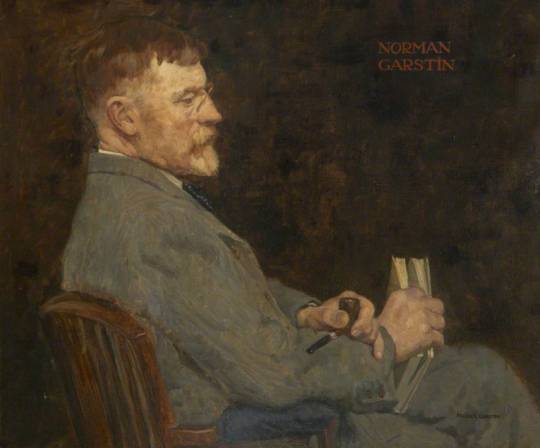#Norman Garstin
Explore tagged Tumblr posts
Text

Norman Garstin - Aurora on the Prairie (1886)
2K notes
·
View notes
Text

Norman Garstin, Poppies, date unknown. Oil on canvas
80 notes
·
View notes
Text

Norman Garstin (Irish, 1847-1926) - Oil on canvas - Portrait of an army officer
11 notes
·
View notes
Text

The Rain It Raineth Every Day, Norman Garstin, 1889
#art#art history#Norman Garstin#landscape#landscape painting#cityscape#rain scene#Irish art#19th century art#Victorian period#Victorian art#oil on canvas#Penlee House
119 notes
·
View notes
Text

Norman Garstin
13 notes
·
View notes
Text

Saturday - An Interior View of Garstin Home, art by Norman Garstin (1910)
1 note
·
View note
Text

Norman Garstin - Aurora on the Prairie (1886)
3 notes
·
View notes
Text

'The Rain it Raineth Every Day'. Norman Garstin. 1889.
26 notes
·
View notes
Text

Aurora on the Prairie (1886)
Artist: Norman Garstin
5 notes
·
View notes
Text

“Peace is not something you wish for. It is something you make, something you are, something you do, and something you give away.”
Robert Fulghum
Norman Garstin - Poppies (1847-1926).
source: Ravenous Butterflies
41 notes
·
View notes
Photo

Aurora on the Prairie, 1886 by Norman Garstin
#aurora#himmel#sky#stars#sterne#prairie#impressionism#landscape#northern lights#nature#natural phenomena#starry sky#garstin#light#shine#nachthimmel#nacht
11 notes
·
View notes
Text

The Rain It Raineth Every Day.
Norman Garstin, 1889.
I was just about to get ready to go on my early morning walk when it started blummin' chuckin' it down. I couldn't find a painting on the Internet to adequately match my mood, so this one will have to do, due to the art history factor.
Acc. to Wikipedia:
Norman Garstin (1847-1926) was an Irish artist, teacher, art critic and journalist associated with the Newlyn School of painters. This was an art colony of artists based in or near Newlyn, a fishing village adjacent to Penzance, on the south coast of Cornwall, from the 1880s until the early twentieth century. The establishment of the Newlyn School was reminiscent of the Barbizon School in France, where artists fled Paris to paint in a more pure setting emphasising natural light. These schools, along with a related California movement, were also known as 'En plein air'. Plein-air painting is the act of painting outdoors. The painting depicts the seafront between Newlyn and Penzance in windy and rainy weather. The use of negative space shows influence from French painter Edgar Degas, whom Garstin met when studying in Paris. Garstin sent the painting to the Royal Academy in 1889 but it was not selected for exhibition, possibly because the jury considered it was "too French" in style. The artist donated the work to Penzance Town Council, but it was not exhibited for some time after it was acquired, due to concerns that tourists would not wish to see Penzance in the rain.
I'm not massively interested in most art or history after the end of the 16th century, to be honest, but it has to be covered if I am to learn about the history of all civilisation from day dot. I tend to ignore Oriental art and history for the same reason - not my cup of camomile. Just personal preference, that's all. In a nutshell, just to be clear, my real interest lays in the art, history and religions of ancient and medieval Europe, Russia and the Near/Middle East. And cheese, which I am about to have for my breakfast on a slice of toast.
Thanks for reading and I hope you all have a nice day, even if it is blummin' raining and scuppering your plans like it is mine!
1 note
·
View note
Text

'Norman Garstin' as painted in 1925 in by his daughter Alethea Garstin (1894-1978).
11 notes
·
View notes


